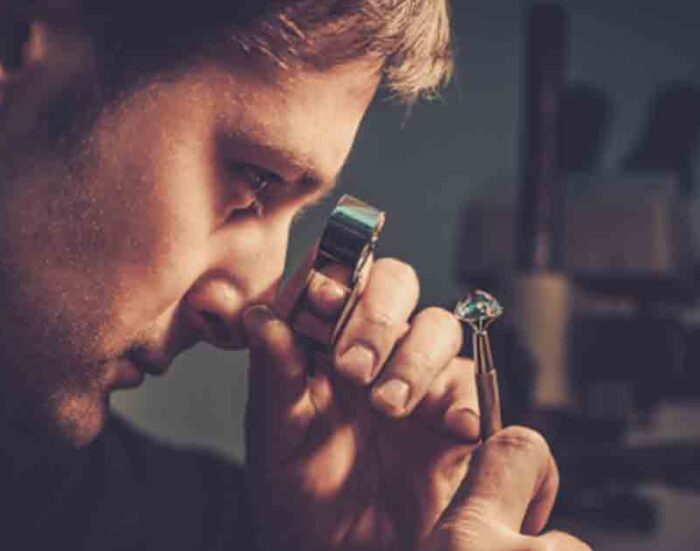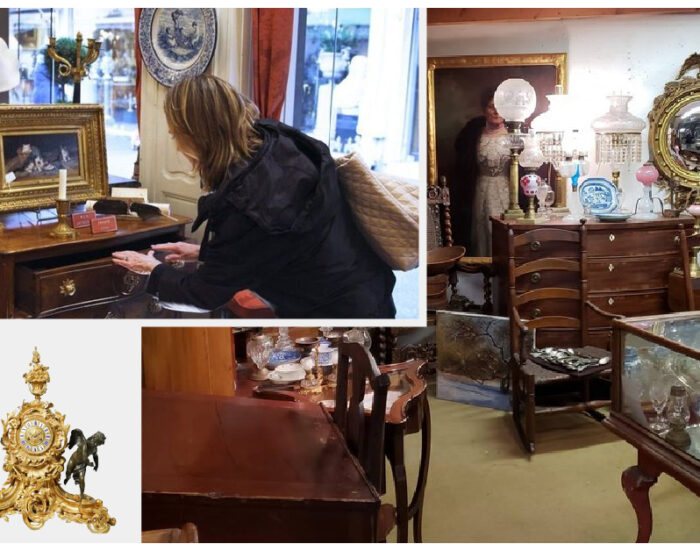What is the Difference Between Antique Appraisal and Valuation?
Everything You Need to Know Before Selling
Antiques can be more than simple old items. Have you ever found something you thought was a work of art, a historical artifact, or a familiar relic that held sentimental value for you or your loved ones? These articles are unique and have a significant meaning for us. If you have antiques that have value, it is fundamental that a professional and reliable appraiser evaluates the value. We will show you the step-by-step process to ensure you find a reliable assessor and understand the difference between assessment and valuation.
Antique Appraisal: What You Need to Know
An experienced appraiser conducts an antique appraisal to determine the value of your antique. Factors such as the item’s condition, restoration, manufacturer’s mark, provenance, rarity, and demand among antique buyers are considered. Getting an expert opinion on the value of your antiques can help you get the best price when selling. When you get an appraisal, the appraiser will provide you with a legal document that can be used for various purposes such as taxes, insurance, estate planning, and wills. It is an important document to help you make informed decisions regarding assets and financial planning.
Antique Valuation: What You Need to Know
An antique valuation is a more comprehensive process than a formal appraisal. It involves a different level of research and detail. It is more of an estimation of the antique’s value and may need to be set on paper. The appraiser might give you a verbal estimation, which can be helpful when you want to have a general idea of the value of your antique. It can also be beneficial for insurance purposes, and some insurance companies will accept a valuation when insuring your antique. However, the more significant the item’s value, the more likely the insurance company will require a formal appraisal. A valuation is usually the first step to determine if you need an appraisal.
Finding a Reliable Appraiser: Tips and Tricks
Finding an ethical and experienced appraiser is crucial, especially for online appraisals where you must mail the antique to them for assessment. Ask for referrals from family, friends, and co-workers, and read online reviews. Find antique buyers and sellers who are experts in the antiques you want to appraise, and visit antique shops and auction houses to find the appraiser you are looking for.
Antique Appraisers Auctioneers: Your Trusted Partner in Antique Appraisal and Valuation
Antique Appraisers Auctioneers has a team of experienced and knowledgeable appraisers who can help you with all your antique appraisal and valuation needs. We provide reliable and accurate assessments of your antiques. We are dedicated to assisting you in getting the best value for your items. We can also help with estate planning, tax purposes, and insurance coverage. Contact them today to learn more about their services and how we can assist you with your antique evaluation needs.
Protecting Your Antiques
Antique appraisals and valuations are not only for those looking to sell their antiques. We can also be helpful in estate planning, insurance coverage, and determining the value of family heirlooms. The process for getting an antique appraisal or valuation can vary, and it’s essential to find a reliable appraiser with experience in the antique you want to appraise.
In addition to using antique appraisals and valuations for practical purposes, we can also be an excellent way to learn more about the history of your antiques. An experienced appraiser can provide information about the manufacturer’s mark, provenance, and rarity of your antique, giving you a better understanding of its value and significance.
In conclusion, whether you’re looking to sell or want to protect your valuable antiques, an appraisal or valuation can give you an accurate understanding of their worth and significance. Contact Antique Appraisers Auctioneers today to learn more about their services and how we can assist you with your antique evaluation needs.
Questions to Inquire Before Hiring an Antique Auctioneer or Appraiser
Are you in need of professional antique appraisal services or an auctioneer for your antique collection or inherited estate? It’s essential to ensure that you’re working with an expert in the field who can get you the best value for your pieces. Before hiring an auctioneer or appraiser, there are several questions you should ask to ensure they’re the right expert for you.
# -1 Have They Appraised Similar Antiques?
Firstly, ask if they have appraised similar antiques before. Being an appraiser doesn’t automatically mean they have experience with the type of antiques you own. Practical experience is often more valuable than theoretical knowledge.
# -2 Are They Seasoned Antique Auctioneers?
Secondly, ensure that the antique auctioneers you’re working with are experienced and have connections with the antique collector community. This will help them bring in people who understand the value of your pieces and bid accordingly.
# -3 Do They Have A Good Reputation?
Thirdly, research their reputation online, talk to others who have had estate auctions, and ask any collectors you know. You can determine if this particular auctioneer or appraiser has a good standing in the community by doing so.
# -4 What Is Their Process?
Fourthly, ask about their process. For example, an appraiser may conduct a visual inspection of your pieces or ask for detailed photographs. An auctioneer may want to preview your items to determine if they’re appropriate for a particular auction or if they would do better in a specialized auction.
# -5 What Are Their Fees?
Fifthly, it’s important to ask about fees upfront. Understanding the fees involved can help you make an informed decision. Appraisers may charge a flat fee, an hourly rate, or a percentage of the item’s value. Auctioneers may charge a commission on the sale of the item, which can range from 10 to 20 percent or more.
# -6 What Are Their Qualifications?
Sixthly, ask about their qualifications. It’s crucial to work with someone who has the proper qualifications and credentials to appraise or auction your antiques. Appraisers may have certifications from organizations such as the International Society of Appraisers or the American Society of Appraisers. Auctioneers may be licensed by their state and have membership in professional organizations such as the National Auctioneers Association.
# -7 Can They Provide References?
Seventhly, asking for references from past clients can give you an idea of the professional’s experience and how they interact with clients. You can ask for references from similar estate auctions or appraisals to ensure they have experience in your specific area.
# -8 Can They Provide A Written Agreement?
Eighthly, Having a written agreement outlining the scope of work, fees, and timeline can help ensure both parties are on the same page. This agreement can also protect you from potential misunderstandings or disagreements down the road. It’s important to ask if the professional can provide a written agreement and review it carefully before signing.
In conclusion, hiring an antique appraiser or auctioneer can be a great way to ensure you get the most money for your antique collection or inherited estate. However, it’s important to do your research and ask the right questions to ensure you’re working with a qualified professional who has experience in your specific area of antiques. By asking about their experience, process, fees, qualifications, references, and written agreements, you can make an informed decision about who to hire for your antique appraisal or auction.
How to use the internet to research the value of Antique – Antique Appraisal Online
Trying to find the value of an antique online may seem like a good idea, but it’s harder than you might think. The first question you have to ask yourself is where to look. A search for American antique appraisal is going to return thousands of results. Even if you can narrow down the results by type of antique or by a brand name, you’re still going to get many different results. Some of these results may not agree with each other on the value, either. Here are some result types you may come across.
Online Auctions
While some antique sellers rely on local antique buyers for their income, others sell their items online. You may find auctions for items that are very similar to the ones you have. How accurate are those prices? It really depends. Some online sellers do work with reputable antique appraisers, but others may price their items higher or lower than their actual value.
Price Guides
You may also come across online price guides for antiques. These guides may be better than online auctions, but they often either provide a wide price range or assume the condition of the item. They can give you an idea of what your piece might be worth, but that price may not be accurate for a piece in poor condition or one that’s outstanding.
Online Appraisal
Your best bet if you’re using the internet is to look for sites that offer antique appraisal online. These estates auctioneers appraisers usually ask that you submit a number of clear photos of the antique and provide as much information as you possibly can about its condition and history. You’ll need images taken from multiple angles that show every side or part of the item. The appraiser will then send you back their official appraisal and any notes they have on the piece.



